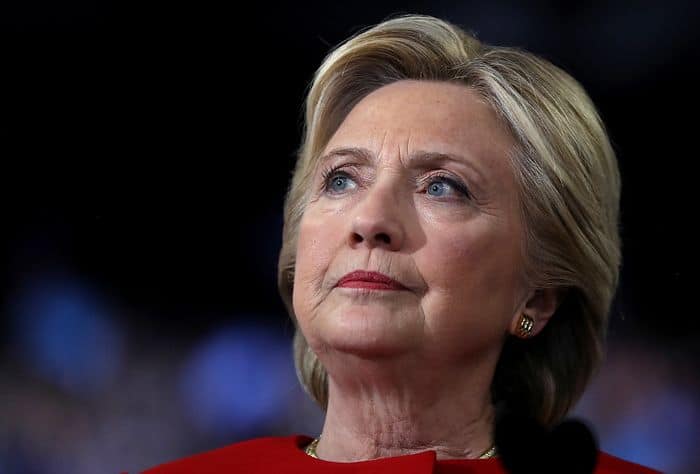Former democratic presidential candidate Hillary Clinton spoke about Bitcoin and crypto’s ability to weaken governments during a video panel discussion at the Bloomberg New Economy Forum in Singapore on Friday.
Hillary warned, “What looks like a very interesting and somewhat exotic effort to literally mine new coins in order to trade with them has the potential for undermining currencies, for undermining the role of the dollar as the reserve currency, for destabilizing nations, perhaps starting with small ones but going much larger.”
In describing this rather vague threat to nations and multinational corporations Hillary betrayed the fact that she doesn’t know the difference between Bitcoin and the separate asset class of cryptocurrencies. Many politicians don’t. The terms should not be used interchangeably.
Bitcoin assures anyone with internet access a decentralized, permissionless right to property that cannot be confiscated or censored by any government. No one on the Bitcoin network is forced to choose between updating their software or risk losing their wealth, it is backwards compatible. Bitcoin is a geographically agnostic personal sovereign wealth fund. The other thousands of cryptocurrencies are centralized and largely unregulated assets whose protocol can be changed at any time, thus, in crypto the threat of property confiscation persists. Bitcoin and crypto are completely different asset classes.
Therefore, when Hillary casually throws crypto in with her laundry list of threats to her political and economic worldview, she is categorically wrong. Cryptocurrencies cannot undermine fiat currencies or nation states outright, because what they offer is fundamentally the same as fiat, which is an asset that can and is debased by governance.
However, Bitcoin, and Bitcoin only, absolutely can, and is disrupting the dollar as a global reserve currency. Bitcoin is a very real threat to the theft of property perpetrated by governments on their people simultaneously through taxation and currency debasement.
“Nation States have got to pay greater attention to the rise of asymmetric power centers,” Hillary stated. Ironically, the threats Bitcoin poses to nation states are predicated on its decentralization.
Hillary tangentially went on to mention that disinformation in the political and economic sphere is only going to get worse. It is unclear what disinformation in the economic sphere she is referring to. It is hard to imagine what more socio-economic relevant disinformation there is outside of the attempts at the Fed to cover up inflation through manipulating and redefining the moving-goal-post that is the consumer price index, and wielding public health policy like a political chess piece.
It is unlikely Hillary was referring to the disinformation or outright misunderstandings spread by governments and environmental groups about Bitcoin.
The former presidential candidate turned public speaker also warned that a “rise of artificial intelligence” was going to threaten nation states without providing any context or definition for artificial intelligence, and in typical diplomat fashion, without proposing any actionable solution to any of these vague perceived threats.
Hillary’s comments came while criticizing Russian President Vladimir Putin, accusing him of deploying “a very large stable of hackers and those who deal in disinformation and cyberwarfare.”
“With his oligarchic coterie he has utilized many non-state actors to personal as well as nationalistic goals, and I think that’s going to become a greater and greater threat,” she said at the forum in Singapore.
Hil has been blaming Russian interference along with decisions by the Federal Bureau of Investigation for her loss in the U.S. presidential election to Donald Trump for years. What these warnings have to do with her “crypto” talking points is unclear. Hillary is tilting at windmills. If she meant to warn the public about Bitcoin, her views are but a laughable example of fear, uncertainty, doubt, and not doing your own research.

